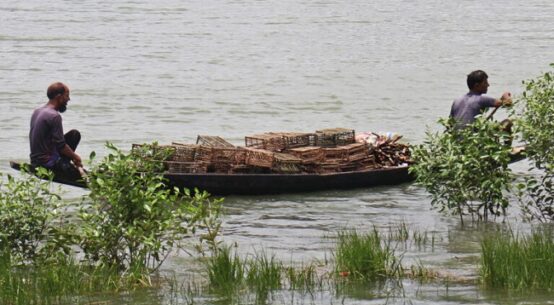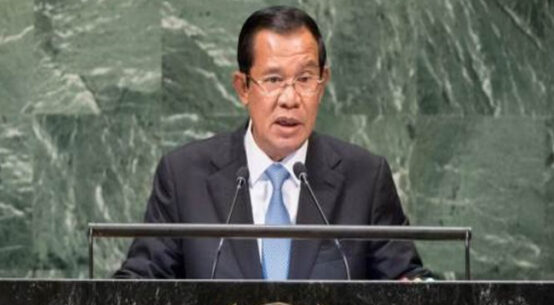
Food crises, economic stagnation and price increases are worsening unevenly, almost everywhere, following the Ukraine war. Sanctions against Russia have especially hurt those relying on wheat and fertilizer imports.
Unilateral sanctions illegal
Unilateral sanctions – not approved by the UN Security Council – are illegal under international law. Besides contravening the UN Charter, unilateral sanctions inflict much human loss. Countless civilians – many far from target countries – are at risk, depriving them of much, even life itself.
Sanctions, embargos and blockades – ‘sold’ as non-violent alternatives to waging war by military means – economically isolate and punish targeted countries, supposedly to force them to acquiesce. But most sanctions hurt the innocent majority, much more than ruling elites.
Like laying siege on enemy settlements, sanctions are ‘weapons of mass starvation’. They “are silent killers. People die in their homes, nobody is counting”. The human costs are considerable and varied, but largely overlooked. Knowing they are mere collateral damage will not endear any victim to the sanctions’ ‘true purpose’.
US sanctions’ victims
The US has imposed more sanctions, for longer periods, than any other nation. During 1990-2005, the US imposed a third of sanctions regimes worldwide. These were inflicted on more than 1,000 entities or individuals yearly in 2016-20 – nearly 80% more than in 2008-15. Thus, the Trump administration raised the US share of all sanctions to almost half!
Tens of millions of Afghans now face food insecurity, even starvation, as the US has seized its US$9.5 billion central bank reserves. President Biden’s 11 February 2022 executive order gives half of this to 9/11 victims’ families, although no Afghan was ever found responsible for the atrocity.
Biden claims the rest will be for ‘humanitarian crises’, presumably as decided by the White House. But he remains silent about the countless victims of the US’s two-decade long war in Afghanistan, where airstrikes alone killed at least 48,308 civilians.
Now, the US-controlled World Bank and IMF both block access to financial resources for Afghanistan. The long US war’s massive population displacement and physical destruction have made it much more vulnerable and foreign aid dependent.
The six decade-long US trade embargo has cost Cuba at least US$130 billion. It causes shortages of food, medicine and other essential items to this day. Meanwhile, Washington continues to ignore the UN General Assembly’s call to lift its blockade.
The US-backed Israeli blockade of the densely populated Gaza Strip has inflicted at least US$17 billion in losses. Besides denying Gaza’s population access to many imported supplies – including medicines – bombing and repression make life miserable for its besieged people.
Meanwhile, the US supports the Saudi-led coalition’s war on Yemen with its continuing blockade of the poorest Arab nation. US arms sales to Saudi Arabia and the United Arab Emirates have ensured the worst for Yemenis under siege.
Blocking essential goods – including food, fuel and medical supplies – has intensified the “world’s worst ongoing humanitarian crisis”. Meanwhile, “years of famine” – including “starving to death a Yemeni child every 75 seconds” – have been aggravated by the “largest cholera outbreak anywhere in history”.
Humanitarian disasters and destroying lives and livelihoods are excused as inevitable “collateral damage”. Acknowledging hundreds of thousands of Iraqi child deaths, due to US sanctions after the 1991 invasion, an ex-US Secretary of State deemed the price “worth it”.
Poverty levels in countries under US sanctions are 3.8 percentage points higher, on average, than in other comparable countries. Such negative impacts rose with their duration, while unilateral and US sanctions stood out as most effective!
Clearly, the US government has not hesitated to wage war by other means. Its recent sanctions threaten living costs worldwide, reversing progress everywhere, especially for the most vulnerable.
Yet, US-led unilateral sanctions against Iran, Venezuela, North Korea and other countries have failed to achieve their purported objectives, namely, to change regimes, or at least, regime behaviour.
Changing US policy?
Although unilateral sanctions are not valid under the UN Charter, many US reformers want Washington to “lead by example, overhaul US sanctions, and ensure that sanctions are targeted, proportional, connected to discrete policy goals and reversible”.
Last year, the Biden administration began a comprehensive review of US sanctions policies. It has promised to minimize their adverse humanitarian impacts, and even to consider allowing trade – on humanitarian grounds – with heavily sanctioned nations. But actual policy change has been wanting so far.
US sanctions continue to ruin Iran’s economy and millions of livelihoods. Despite COVID-19 – which hit the nation early and hard – sanctions have continued, limiting access to imported goods and resources, including medicines.
A US embargo has also blocked urgently needed humanitarian aid for North Korea. Similarly, US actions have repeatedly blocked meeting the urgent needs of the many millions of vulnerable people in the country.
The Trump administration’s sanctions against Venezuela have deepened its massive income collapse, intensifying its food, health and economic crises. US sanctions have targeted its oil industry, providing most of its export earnings.
Besides preventing Venezuela from accessing its funds in foreign banks and multilateral financial institutions, the US has also blocked access to international financial markets. And instead of targeting individuals, US sanctions punish the entire Venezuelan nation.
Russia’s Sputnik-V was the first COVID-19 vaccine developed, and is among the world’s most widely used. Meanwhile, rich countries’ “vaccine apartheid” and strict enforcement of intellectual property rights – augmenting corporate profits – have limited access to ‘Western’ vaccines.
The US has not spared Sputnik-V from sanctions, disrupting not only shipments from Russia, but also production elsewhere, e.g., in India and South Korea, which planned to produce 100 million doses monthly. Denying Russia use of the SWIFT international payments system makes it hard for others to buy them.
Rethinking sanctions
Economic sanctions – originally conceived a century ago to wage war by non-military means – are increasingly being used to force governments to conform. Sanctions are still portrayed as non-violent means to induce ‘rogue’ states to ‘behave’.
But this ignores its cruel paradox – supposedly avoiding war, sanctions lay siege, an ancient technique of war. Yet, despite all the harm caused, they typically fail to achieve their intended political objectives – as Nicholas Mulder documents in The Economic Weapon: The Rise of Sanctions as a Tool of Modern War.
As Cuba, Iran, Afghanistan and Venezuela were not major food or fertilizer exporters, their own populations have suffered most from the sanctions against them. But Russia, Ukraine and even Belarus are significant producers and exporters.
Hence, sanctions against Russia and Belarus have much wider international implications, especially for European fuel supplies. More ominously, they threaten food security not only now, but also in the future as fertilizer supplies are cut off.
With tepid growth since the 2008 global financial crisis, the West now blocks economic recovery. Vaccine apartheid, deliberate supply disruptions and deflationary policies now disrupt international economic integration, once pushed by the West.
As war increasingly crowds out international diplomacy, commitments to the UN Charter, multilateralism, peace and sustainable development are being drowned by their enemies, often invoking misleadingly similar rhetoric.
Jomo Kwame Sundaram is a prominent Malaysian economist. He is senior adviser at the Khazanah Research Institute, visiting fellow at the Initiative for Policy Dialogue, Columbia University, and adjunct professor at the International Islamic University.
Anis Chowdhury is Adjunct Professor of Economics, Western Sydney University & University of New South Wales (Canberra campus). He served as a senior official at UN-DESA (New York) and UN-ESCAP (Bangkok). Prior to joining the United Nations, he was Professor of Economics at Western Sydney University.


